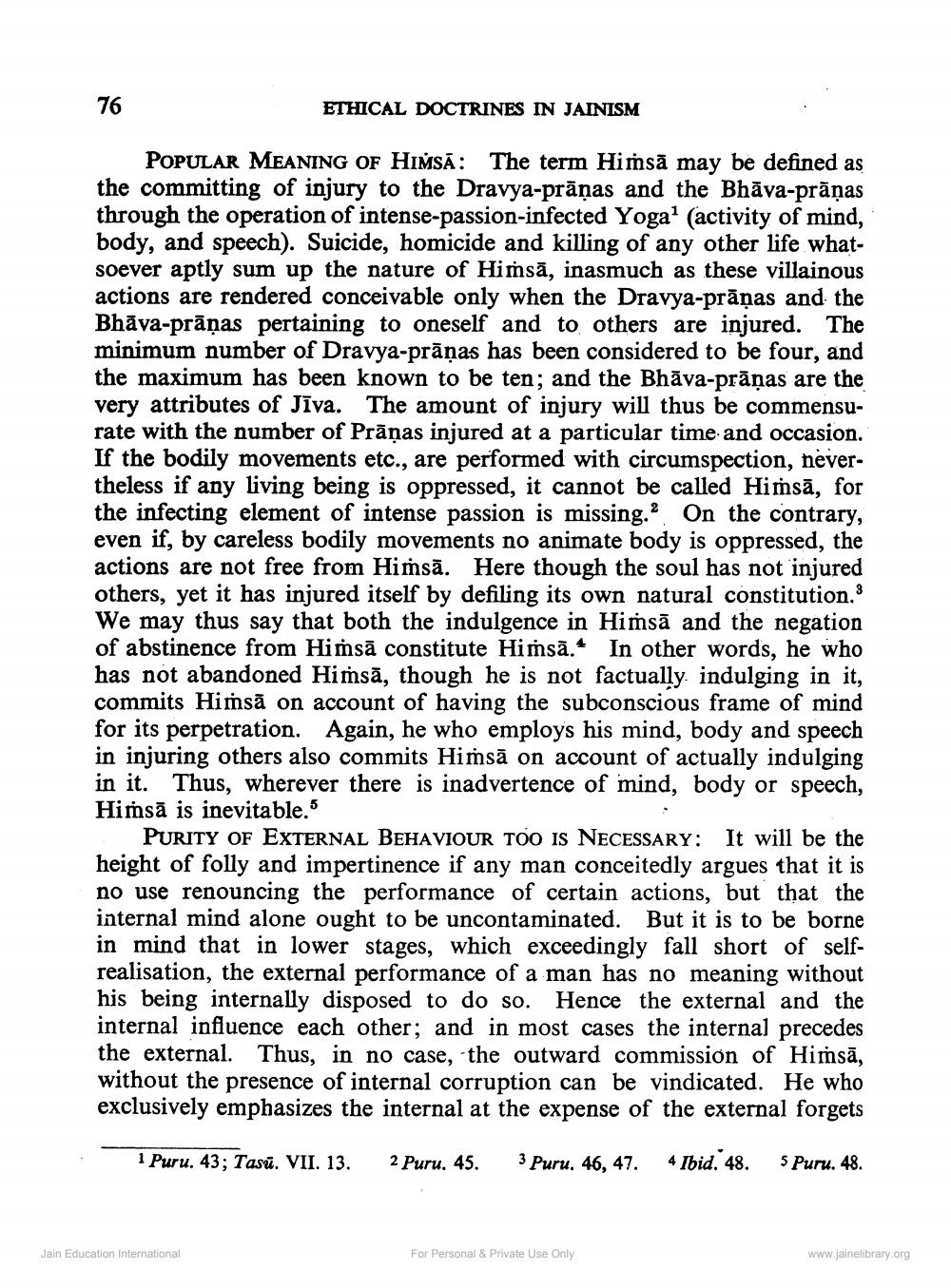________________
76
ETHICAL DOCTRINES IN JAINISM
POPULAR MEANING OF HIMSA: The term Himsa may be defined as the committing of injury to the Dravya-prāṇas and the Bhāva-prāṇas through the operation of intense-passion-infected Yoga1 (activity of mind, body, and speech). Suicide, homicide and killing of any other life whatsoever aptly sum up the nature of Himsā, inasmuch as these villainous actions are rendered conceivable only when the Dravya-prāṇas and the Bhāva-prāṇas pertaining to oneself and to others are injured. The minimum number of Dravya-prāņas has been considered to be four, and the maximum has been known to be ten; and the Bhāva-prāņas are the very attributes of Jīva. The amount of injury will thus be commensurate with the number of Prāņas injured at a particular time and occasion. If the bodily movements etc., are performed with circumspection, nevertheless if any living being is oppressed, it cannot be called Himsā, for the infecting element of intense passion is missing. On the contrary, even if, by careless bodily movements no animate body is oppressed, the actions are not free from Himsa. Here though the soul has not injured others, yet it has injured itself by defiling its own natural constitution.3 We may thus say that both the indulgence in Himsā and the negation of abstinence from Himsă constitute Himsa. In other words, he who has not abandoned Himsa, though he is not factually indulging in it, commits Himsā on account of having the subconscious frame of mind for its perpetration. Again, he who employs his mind, body and speech in injuring others also commits Himsa on account of actually indulging in it. Thus, wherever there is inadvertence of mind, body or speech, Himsā is inevitable."
PURITY OF EXTERNAL BEHAVIOUR TOO IS NECESSARY: It will be the height of folly and impertinence if any man conceitedly argues that it is no use renouncing the performance of certain actions, but that the internal mind alone ought to be uncontaminated. But it is to be borne in mind that in lower stages, which exceedingly fall short of selfrealisation, the external performance of a man has no meaning without his being internally disposed to do so. Hence the external and the internal influence each other; and in most cases the internal precedes the external. Thus, in no case, the outward commission of Himsă, without the presence of internal corruption can be vindicated. He who exclusively emphasizes the internal at the expense of the external forgets
1 Puru. 43; Tasū. VII. 13.
3 Puru. 46, 47. 4 Ibid. 48. 5 Puru. 48.
Jain Education International
2 Puru. 45.
For Personal & Private Use Only
www.jainelibrary.org




